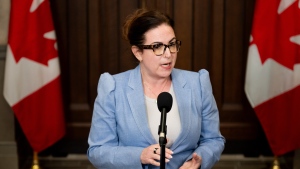The city of Toronto’s request to decriminalize drugs has been rejected by the federal government in Ottawa.
After months of deliberation and debate, the decision was announced by Health Minister Patty Hajdu on Tuesday. Toronto’s proposal, which was put forward by the city’s Board of Health, aimed to reduce the harm caused by drug use and shift the focus towards treatment and support rather than criminalization.
However, the federal government has stated that they do not support the decriminalization of drugs at this time. In a statement, Minister Hajdu cited concerns about the potential impact on public safety and the need for further research and evidence before making such a significant change.
This decision has sparked disappointment and frustration among advocates for drug policy reform, who argue that decriminalization is a crucial step towards addressing the ongoing opioid crisis and reducing the stigma surrounding drug use.
Toronto’s Board of Health Chair, Joe Cressy, expressed disappointment in the decision, stating that it is a missed opportunity to save lives and improve public health. He also emphasized the need for a more compassionate and evidence-based approach to drug policy.
On the other hand, some critics of the decriminalization proposal have raised concerns about the potential consequences, such as an increase in drug use and related crime.
Despite the rejection of Toronto’s request, Minister Hajdu has stated that the federal government remains committed to addressing the opioid crisis and supporting harm reduction efforts. She also acknowledged the need for continued collaboration and dialogue between all levels of government to find effective solutions.
This decision by the federal government highlights the ongoing debate and challenges surrounding drug policy in Canada. While Toronto’s request for decriminalization has been rejected, the conversation and efforts towards finding solutions to the complex issue of drug use and addiction must continue.



